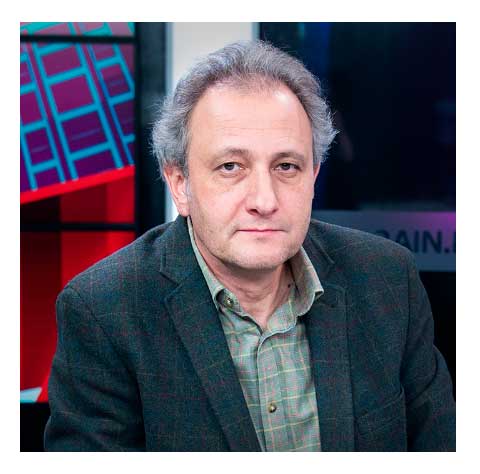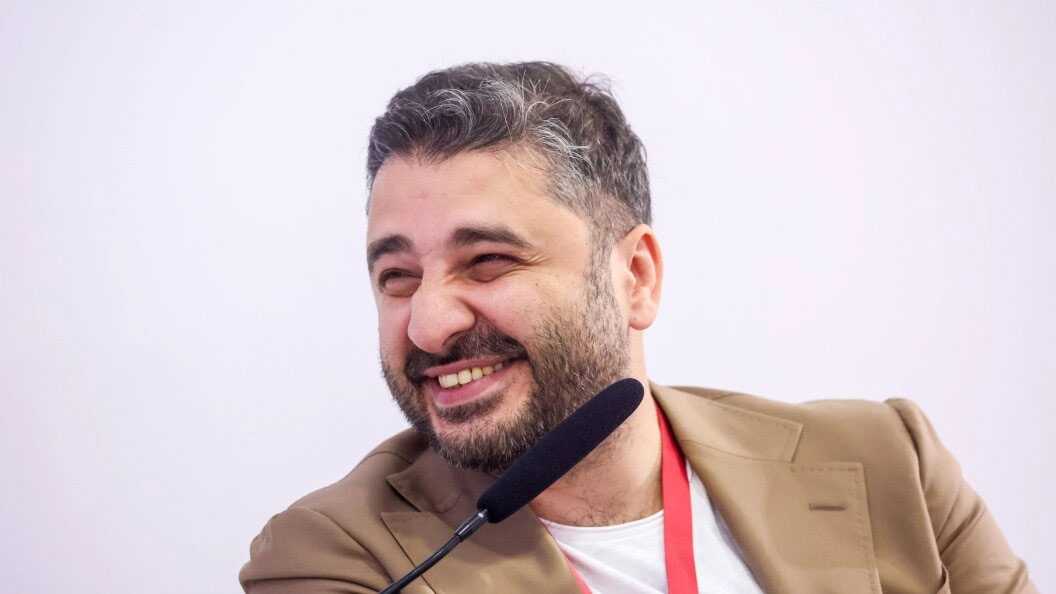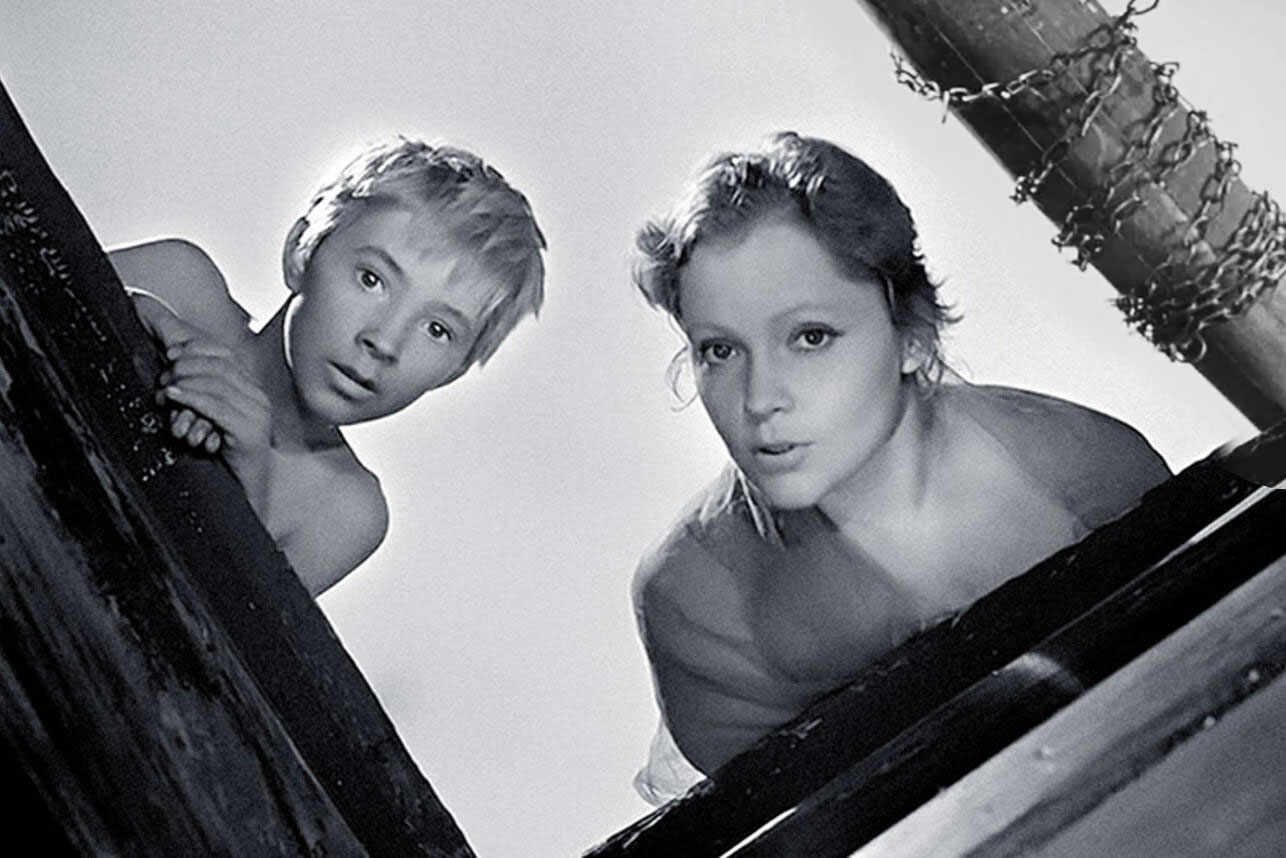'As long as the people are illiterate, of all the arts, cinema and circus are the most important for us'
V. I. Lenin
'Ivan the Terrible as a progressive force of his time, and the oprichnina as his expedient tool, turned out well'.
From the resolution of I. V. Stalin on the script of the film 'Ivan the Terrible' by Sergei Eisenstein, September 13, 1943
 It's a strange thing — liberals seem to have been expelled from the country, within the country itself they were rolled into asphalt, turned into disenfranchised with special accounts, driven into catacombs. The rest were silenced, and even forced to be their accomplices, and those who excelled were given preferences everywhere, including in the area metaphorically called 'culture'. However, there is still an endless fierce battle with some 'liberals' undermining our 'sovereignty' and 'security'. And patriotic cinema too.
It's a strange thing — liberals seem to have been expelled from the country, within the country itself they were rolled into asphalt, turned into disenfranchised with special accounts, driven into catacombs. The rest were silenced, and even forced to be their accomplices, and those who excelled were given preferences everywhere, including in the area metaphorically called 'culture'. However, there is still an endless fierce battle with some 'liberals' undermining our 'sovereignty' and 'security'. And patriotic cinema too.
The scandal with the director, whose name I heard for the first time, Sarik Andreasyan, who quarreled with film school students over Andrei Tarkovsky and, in general, outdated, sixty-year-old (why sixty-year-old?) 'author's cinema', resulted in accusations of some mysterious 'liberals'. In the past, they would have said — 'Zionists'.
By the way, besides the fact that Andrei Arsenyevich has nothing to do with author's cinema (it was partly forbidden, but quite popular and profitable), he was not any 'liberal'. Although recording him as a 'patriot', as many do, for example, Nikolai Burlyaev, is hardly worth it. Tarkovsky was certainly deeper and broader than such a system of coordinates and a mini-catalog of political preferences.

Sarik Andreasyan. Photo: Petrov Sergey, news.ru / Globallookpress
A forty-year-old man with professional baggage, such as director Andreasyan, has the right to love or not love Tarkovsky. But from the same professional point of view, if he calls his product, adapted to market tastes (I note, imaginary and formed by entertainment products), cinematography, then at least Tarkovsky earned his place in the history of this very cinematography. Not to mention that there are people, millions of people, who rightfully consider Andrei Arsenyevich's works the pinnacle of cinema art, and Tarkovsky's films evoke emotional, aesthetic, ethical responses in them.
Andreasyan has stylistic disagreements (A. D. Sinyavsky) with Tarkovsky. Exactly the same as the great director (not Andreasyan) had with Goskino, the Central Committee, and other bodies. And as in the case of these bodies, stylistic disagreements were interpreted as political. Style is politics.
Here's what Andreasyan wrote post factum: 'It is these film schools that nurture those very liberals who hate their country and try to provoke anyone who thinks differently from what they were told'. (The commas in this sentence, if anything, I placed myself.)
This translation of the conversation into another plane is not very honest. It is vulgar and unethical to defend against students by appealing to politics. This, of course, is the standard manner of any supporters of the current authorities, turning from passive conformists into active ones. But the result is a denunciation.
And then there is undoubtedly some misunderstanding here. There is cinema and cinema. There is the art of cinema, and there is an applied entertainment industry, full of deliberate, specially learned bad taste, having an adaptive political flavor and a poisonous aesthetic aftertaste. There is cinema. And there is 'cinema, wine, and dominoes'. These concepts need to be distinguished. The sphere of art and the sphere of services are different. Tarkovsky is from the world of cinema, where the tradition laid down by him is preserved. Andreasyan is from, as it is now customary to say, the industry, the sector. They are separated artistically, aesthetically, ethically, sometimes economically, but also politically.
Andreasyan, it is claimed, is currently working, among other things, on the adaptation of 'War and Peace', on 'Prostokvashino', 'The Tale of Tsar Saltan', and a series with the tautological title 'Stalin: Koba'. Nothing new — continuous remakes, which are always worse than their predecessors, no matter how 'modern', primarily advertising, laws the product is manufactured under. And the ubiquitous Stalin now is a fashion tailored to the moods of the population and authorities and at the same time forming these moods. All this flood of film products will probably have a consumer. Good health — just don't tell us that everything around is outdated, while we are flying to Mars, according to Andreasyan.
Moreover, we are not flying to Mars — everything was flying well for us approximately at the times to which this craftsman appeals with such anger: the country was successful in the years of the thaw — both in the space race and in the art of cinema. Real cinema. Khutsiev, Shpalikov, Shepitko, German, Parajanov, and many others, who suffered from censorship. Andreasyan cannot have problems with censorship a priori.
Then there was real war cinema, sometimes even non-propagandistic and non-primitive. And the moral right at that time to such cinema was with the nation. Now it is not, as well as the sacrilegious equation of the SVO and the Great Patriotic War.
But already a noticeable stream of vulgar cinematic production on a fashionable and state-demanded topic has flowed. On the shelves, with a small print run of 4 thousand copies for the main writer of the Russian land, appears the book of stories by Zakhar Prilepin 'Militia Romance' (the publishing house is right to touch the reader's water with such a careful print run — it is not entirely obvious that there is demand for military literature in a society tired of combat exercises, but for Orwell — it still holds!). In parallel, a series of the same name with shootings and rough real men is released — now this is done in a snap, and it does not matter at all whose name stands as the director/screenwriter, Andreasyan, or Lukichev, or Ivanov-Petrov-Sidorov. This is a product for sale, like a souvenir in a shop next to a landmark.
This is how it works — in addition to the TV and Z-channels. 'Professionals', craftsmen. Where there is no aesthetics, there is no ethics.
All this is from meaninglessness. From the meaninglessness of killing a person for nothing. From the meaninglessness of a dull life that requires entertainment and nothing more. The massacre itself became possible precisely in an empty bored society, entertaining itself with 'professional' pictures and clips. A society of spectacle, tailored to the needs of people, holding power for power's sake for decades.
A phrase from the series teaser is propagandistic but involuntarily reveals this emptiness: 'When I decided to go to Donbass, a meaning immediately appeared'. And in peaceful life, outside of killings, outside of this 'defending the homeland' in a situation where no one attacked it and even thought of attacking, there is no meaning. There is heroism of death, but there is no heroism of life. There is heroism of destruction, no heroism of creation.
And here's what happens to a person, shown by Prilepin himself (he is still a writer): 'Field commander Razumny — unlike Lesentsov, local, Donbassian, — perfectly reproduced the previously existing historical type: he resembled a very good geography teacher who suddenly, when the seasonal apocalypse began, discovered in himself the ability to kill. Razumny tried to kill for a reason'. Yes, a geography teacher going to a big massacre turns into a killer. This is known. You can read about this from other authors. For example, from Hannah Arendt.
In the very first story of Prilepin's collection, the entire absurdity of a boring life and the senselessness of the meat grinder is shown. No one pulled the author to the keyboard, he himself demonstrates this — all the horror, dirt, chaos of deaths for nothing. The entire bandit essence of what is happening. And this is indeed prose, yes. A random person, innocent of anything, for nothing, without any heroism, has half his skull blown off. And the contents of the head 'thickly flowed down his back: as if a huge crushed caterpillar'. Why? For what?

Frame from the film 'Ivan's Childhood', 1962
Yes, this is not 'Trial on the Road', not 'Life and Fate'. This is cinema and literature of the apocalypse, man-made and nurtured.
I'll go rewatch Tarkovsky — there's nothing else to watch anyway, domestic cinema has died, becoming commissioned, applied, and 'patriotic'. Or 'Nostalgia', full of genuine love for the Motherland and longing for it. Or 'The Sacrifice', filled with love for humanity, almost falling into a nuclear catastrophe. Or 'Solaris', which is about human conscience, a sick conscience. If anyone still has it in principle. What could be more relevant than Tarkovsky in our circumstances? And how it was filmed! My God, what operators, what artists, what actors! Just for film school.
Learn, applicators and craftsmen! It's never too late. A person learns all their life. Especially humanitarianism. Paraphrasing Sartre, we can say: humanitarianism is professionalism.
* Andrey Kolesnikov is considered a 'foreign agent' by the Ministry of Justice of the Russian Federation.